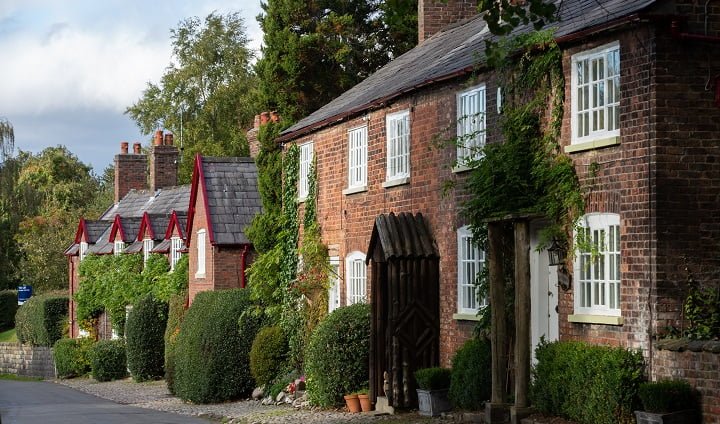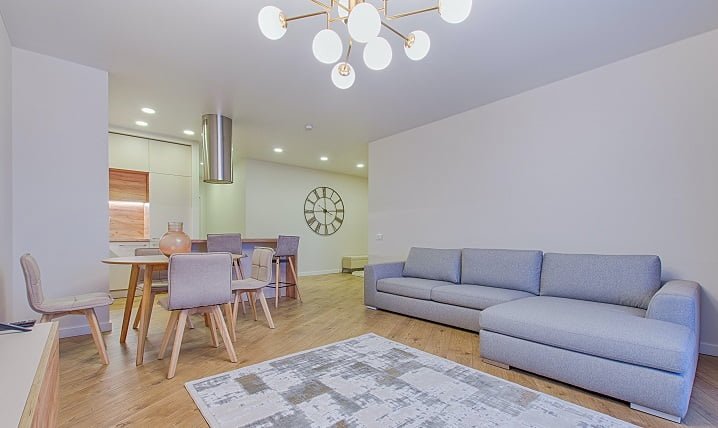Drug Rehab and Alcohol Rehab in Peterborough and near Peterborough
Quick links for drug & alcohol rehab in Peterborough and near Peterborough
- Dual diagnosis at drug rehab & alcohol rehab in Peterborough
- The benefits of attending private drug rehab & alcohol rehab in Peterborough
- NHS vs private drug rehab & alcohol rehab in Peterborough and near Peterborough
- What are the alternatives to going to drug rehab & alcohol rehab in Peterborough?
- Intervention and the CRAFT method for drug & alcohol rehab in Peterborough and near Peterborough
- How much will drug rehab & alcohol rehab in Peterborough cost?
- How long is a residential stay at a drug rehab & alcohol rehab in Peterborough?
- What therapies are on offer at drug rehab & alcohol rehab in Peterborough?
- Contacting Rehab Recovery for drug rehab & alcohol rehab in Peterborough today
People who are looking for help with drug or alcohol recovery in Peterborough should look no further than one of the many drug and alcohol rehab centres in the area.
Below, we provide some statistics about alcohol and drug use in Peterborough:
| Drug and Alcohol Statistics in Peterborough | Data | |
|
9 | |
| Drug-related deaths in Peterborough in 2020 | 18 | |
| Number of new presentations to treatment in Peterborough for alcohol use in 2020 | 884 | |
| Number of the new presentations who were parents or adults living with children | 192 |
Drug and alcohol addiction help in Peterborough can be sought out without too many problems. The toughest obstacle to overcome is often denial and the fear of change.
In Peterborough in 2020, drug-related deaths doubled from 9 to 18. That same year, there were 884 new presentations of people entering treatment for alcohol abuse at an alcohol rehab or other treatment provider.
Although extremely concerning, these statistics are not surprising given the prevalence of binge drinking and general alcohol abuse in the United Kingdom.
Substance use disorder is high and, with it being such a complex disease, rehabilitation services have never been so important.
Drug and alcohol rehab can be approached in a variety of different ways, and it’s important to understand how this works.
Attending drug and alcohol rehab is often the only way a person can regain control of an addiction.
This is because substances change how the brain and body function.
Addiction alters the neural pathways in the brain and how organs work.
The substance, therefore, creates an environment where the person with the disease returns to drugs or alcohol compulsively. When this happens a person requires treatment from a professional drug and alcohol rehab.
Start your recovery journey at a rehab in Peterborough today by calling our expert team on 0800 088 66 86
What does it mean to receive a dual diagnosis at drug rehab & alcohol rehab in Peterborough?

Dual diagnosis at drug & alcohol rehab in Peterborough and near Peterborough
People often turn to drugs and alcohol when they’re not feeling great.
If a person has a mental health problem, substances might be sought even more during difficult moments.
Within the addiction field, it’s acknowledged that addiction and mental health problems are linked.
People use drugs and alcohol to regulate their moods, for instance, but in the long run, this creates more problems as substances ultimately have a deteriorating effect on mental and physical health, further complicating treatment at a drug and alcohol rehab.
With prolonged use, addiction to drugs and alcohol can easily develop.
It’s really important for people who have both illnesses to be properly diagnosed and treated whilst at drug and alcohol rehab in Peterborough.
Mental illnesses that are common comorbidities of addiction and are typically treated at drug & alcohol rehab in Peterborough include:
- Schizophrenia
- Bipolar Disorder
- Eating disorders
- Depression
- Generalised Anxiety Disorder (GAD)
- Borderline Personality Disorder (BPD)
- Obsessive Compulsive Disorder (OCD)
- Attention Deficit Hyperactivity Disorder (ADHD)
- Post Traumatic Stress Disorder (PTSD)
- Codependency
The reason for this is that with a dual diagnosis, the most suitable treatments can be provided. Professionals need to take a slightly different approach where a person has a mental health problem as well.
A dual diagnosis will also offer a better chance of recovery as drug and alcohol rehab staff will treat the two alongside each other.
Many organisations across the UK offer free mental health support, whether you are also suffering from drug or alcohol addiction or not.
Some of the most useful include Mind UK, Young Minds, Rethink Mental Illness, Samaritans and Papyrus.
Several physical complications are also commonly associated with addiction, including:
- Liver failure
- Alcohol hepatitis
- Heart issues
- Blood pressure issues
- Brain damage
- Gastrointestinal issues
These are also considered comorbid conditions and their presence will be a key influence in an individual’s drug and alcohol rehab treatment plan.
To learn more how a drug and alcohol rehab in Peterborough will support your mental health needs, call us on 0800 088 66 86
Why is abstinence so important at drug rehab & alcohol rehab in Peterborough or near Peterborough?

Woman drinking a coffee by the sea after staying at a drug & alcohol rehab in Peterborough
When you go to a drug & alcohol rehab in Peterborough, the aim will be to get you sober.
Abstinence, for the person who has a drug or alcohol addiction, is the ultimate goal in the sense that it’s most often the only way a person can control their habit.
Many people leave rehab and do really well for perhaps six months. They’ll be filled with inner confidence, which is great, however, this can turn to over-confidence.
This state is risky because this is where people think they’re strong enough to face old drug and alcohol triggers. This is usually the type of moment at which people relapse into using drugs or alcohol again, even after effective drug and alcohol rehab treatment has ended.
It’s essential when you go to drug and alcohol rehab that you’re honest with yourself about what your triggers are and how severe your addiction is. This way a solid relapse prevention plan can be put in place and you will have the best chance of living a life free from drug and alcohol abuse.
Begin your journey towards abstinence through a drug and alcohol rehab in Peterborough – call our team on 0800 088 66 86
Private drug rehab & alcohol rehab in Peterborough

Private drug and alcohol rehab clinics in Peterborough offer an incredible programme of addiction treatments.
Staff hold psychiatric assessments and then create a tailored rehab programme of person-centred care to suit your specific needs.
This is important in order for you to gain the best chances of long-term recovery.
Other benefits of attending a private drug and alcohol rehab clinic in Peterborough are:
- Being in a safe drug and alcohol rehab environment without any usual triggers.
- Care from professional drug rehab and alcohol rehab staff 24 hours a day. This means you’re supported during difficult moments of cravings.
- Talking and behavioural therapies at drug rehab and alcohol rehab to unravel the causes of addiction and how to overcome them.
- One-to-one and group rehab therapy sessions to help prepare patients for life after drug and alcohol rehab in Peterborough has ended.
- A medically supervised detox to ensure patients who have physical dependencies are able to detox safely.
- Delicious home-cooked food at rehab to help nourish the body and lift spirits.
- Daily alternative therapies to help you to relax and unwind during drug rehab and alcohol rehab.
- 12 months of aftercare support after drug rehab and alcohol rehab has finished.
Addiction is not considered a ‘choice’ or ‘moral failing’ on behalf of the addiction sufferer – drug and alcohol rehab is about treating the disease of addiction.
Start your recovery journey at a rehab in Peterborough today by calling our expert team on 0800 088 66 86
NHS vs private drug rehab & alcohol rehab in Peterborough and near Peterborough

Group therapy at a drug and alcohol rehab in Peterborough or near Peterborough
When you access free NHS drug and alcohol services in Peterborough, you’ll be explained the weekly timetable of group activities that you can attend.
You might also have access to some one-to-one drug or alcohol counselling sessions.
Occasionally, you may also be awarded funding from the NHS to attend residential drug or alcohol rehab treatment at a private centre. This is rare however, due to both its high cost and the high demand of NHS addiction treatment services.
Sadly, government funding for drug and alcohol rehab and other addiction treatment has been seriously reduced in recent years and provision reflects this.
The National Health Service can provide information and resources for issues surrounding drug and alcohol abuse, as well as direct support through a local NHS Foundation Trust, often for free or at a reduced cost.
Freely accessible addiction support services in Peterborough and near Peterborough include:
1. Aspire Drug & Alcohol Recovery Peterborough (Change Grow Live)
Address: 102-104 Bridge Street, Peterborough, PE1 1DY
Telephone: 01733 895 624
Website: https://www.changegrowlive.org/aspire-recovery-peterborough/info
2. CAMHS Peterborough
Address: City Care Centre, Thorpe Road, Peterborough, PE3 6DB
Telephone: 0300 555 5810
Website: https://www.cpft.nhs.uk/search/service/child-and-adolescent-mental-health-services-camhs-63/
3. Turning Point Cambridgeshire and Peterborough
Address: Office 44 Pinnacle House, Newark Road, Peterborough, PE1 5YD
Telephone: 01733 857 870
Website: https://www.turning-point.co.uk/find-a-service.html#/71
You can reach out to a number of remote services, such as the National Institute for Health and Care Excellence (NICE), Turning Point, We Are With You, Change Grow Live and the National Association for Children of Alcoholics.
If you are suffering from too many temptations and triggers in your home life, you may also be able to gain temporary residence in a sober living house to experience a controlled and supportive environment similar to that received at a drug and alcohol rehab in Peterborough.
For help choosing between NHS and private drug and alcohol rehab in Peterborough, call us today on 0800 088 66 86
What are the alternatives to going to drug rehab & alcohol rehab in Peterborough?

Group celebrating during sunset at a drug and alcohol rehab in Peterborough or near Peterborough
Professionally supported drug and alcohol rehab in Peterborough is one of the best ways to recover from addiction.
However, there are many alternative options to staying as a resident at a drug and alcohol rehab clinic.
These might suit you better, especially if you don’t have a severe problem with substances or if you’re managing abstinence effectively.
Other methods of drug rehab and alcohol rehab treatment include:
- Accessing outpatient services at a private drug rehab and alcohol rehab clinic or government-funded service in Peterborough or near Peterborough.
- A home detox, in a situation where the person has been assessed as being safe to have this at home and does not need help from a drug rehab or alcohol rehab in Peterborough. This is for patients who are dependent on drugs or alcohol and need to break their physical dependency. A doctor will be in daily contact and prescribe medication accordingly.
- Participating in 12-step groups in Peterborough like AA and NA, or other derivative groups like Al-Anon Family Group Meetings and Alateen, providing personal support and guidance away from future drug and alcohol use, similar to the peer support experienced at drug and alcohol rehab.
- Family group sessions for those related to a person who is suffering from drug or alcohol addiction and who need their own support in Peterborough or near Peterborough.
If any of these alternative addiction treatment options in Peterborough seem like the right choice for you, call us today on 0800 088 66 86
Intervention and the CRAFT method for drug rehab & alcohol rehab in Peterborough and near Peterborough

Family therapy at a drug & alcohol rehab in Peterborough or near Peterborough
If you’re concerned about someone in your family who has an addiction, there are things you can do now to support them towards entering drug and alcohol rehab in Peterborough.
This might seem impossible, especially if the person you care about is in denial of their drug or alcohol addiction.
An intervention can be staged where the family learns about the CRAFT method as a way of approaching their loved one and guiding them towards drug and alcohol rehab treatment.
This method offers a variety of tools that you can adopt to support your loved one in a way that encourages them towards accessing drug and alcohol rehab.
This is a method that takes into account your expertise on your family member while giving you new communication techniques that can inspire changes in their behaviours related to drug and alcohol addiction.
As you work through this method, you might then work towards a regular intervention where you and a professional sit down with your loved one to discuss your concerns and suggest possible sources for drug and alcohol rehab in Peterborough.
For guidance conducting an intervention in order to prepare a loved one for addiction treatment in Peterborough, call us on 0800 088 66 86
How much will drug rehab & alcohol rehab in Peterborough cost?

A stay at a private drug & alcohol rehab in Peterborough will probably cost less than you imagine.
Prices are affected by how long you stay, where you go, and what medications and treatments you need.
For people who want a single occupancy room at drug and alcohol rehab while undergoing a 10-day detox, it will cost around £3,000-£6,000.
For the same treatment but in a shared room at a drug and alcohol rehab in Peterborough, it will cost around £2,000-£4,000.
For a 28 day stay at a drug and alcohol rehab clinic with your own private room, it will cost around £8,000-£12,000. For a shared room for the same length of time, it will cost £6,000.
Home detox for people who have a dependence on alcohol costs around £1,500. The person will be under a doctor’s care and will be in daily contact before medication is prescribed.
For a more accurate estimation of how much your time at rehab in Peterborough will cost, call us today on 0800 088 66 86
Drug and alcohol detox at rehab in Peterborough and near Peterborough

Hot stone massage during holistic therapy at a drug & alcohol rehab in Peterborough or near Peterborough
Some psychoactive substances create a physical dependence. This is certainly the case with alcohol, benzodiazepines, ketamine and heroin, however it does not apply in the case of cocaine dependence, cannabis use disorder, or behavioural addictions (i.e gambling addiction).
When this happens, the body comes to require the substance in order to function normally.
If the person was to go “cold turkey”, they could experience extreme symptoms. In the case of alcohol withdrawal syndrome, this commonly includes severe pain, sickness and diarrhoea, delirium tremens, Wernicke’s encephalopathy and alcohol seizures.
This is certainly what happens when people withdraw from an alcohol dependency. Of course, if a person has a seizure when they’re alone, this can lead to death.
Drug & alcohol detox medications at drug rehab & alcohol rehab in Peterborough and near Peterborough
A medically-assisted drug or alcohol detox by a team of professionals is essential where a physical dependency has developed. This ensures you’re kept safe as a patient and will be weaned off the substance in a controlled way in a fully monitored drug and alcohol rehab environment.
Heroin detox is extremely important to ensure a safe recovery, not just for heroin addiction but also for any opioid use disorder.
Medications like methadone and buprenorphine are widely used to make heroin withdrawal a much safer process.
After this, patients are encouraged to stay at drug and alcohol rehab for three to four weeks in order to participate in therapies.
This is where the psychology of addiction is focused so that deep healing can begin.
To learn more about how a detox is essential to many addiction treatments in Peterborough, call us on 0800 088 66 86
How long does a residential drug rehab & alcohol rehab stay in Peterborough last?

People will stay in drug and alcoohl rehab for different lengths of time. Some might require medications to manage withdrawal or mental health symptoms.
Each person will have a discussion about this in order to understand what will be most suited.
Detox usually lasts between 7 to 10 days, but the majority of people will stay for another few weeks. People who don’t require a detox will also need to fully immerse themselves in a programme of therapies.
It has to be remembered that going to a drug & alcohol rehab in Peterborough is for people with moderate to severe addictions. As such, the standard length of time for treatments to take place and really bring results is around 28 days.
To learn how long your stay at rehab in Peterborough is likely to take, give our team a call on 0800 088 66 86
Cannabis rehab in Peterborough and near Peterborough

Yes, you can attend drug and alcohol rehab for cannabis addiction
Your cannabis use would have to be classified as being severe and be having serious repercussions in other areas of your life. This might be in relation to your physical, psychological, and social health.
THC, the compound in cannabis that causes people to feel high is what causes serious problems for many users.
Although they might begin by using the substance to relax, cannabis creates issues for people around motivation, sleep, paranoia, and mental health.
Therapies focus on re-programming how a person manages their thoughts and feelings when they’re triggered to use. Of course, addictive use usually becomes so habitual, that deep psychotherapy is required to unravel this.
Beat your cannabis addiction with the help of a drug and alcohol rehab in Peterborough. Call our team on 0800 088 66 86
Cocaine rehab in Peterborough and near Peterborough

Cocaine creates extremely compulsive behaviours in regular users. Even as they’re experiencing the effects of a hit they might be thinking of the next hit.
For the vast majority, the desired effects they once sought from cocaine use or crack cocaine use are long gone.
People are left feeling unwell, anxious, and their bodies and health start to deteriorate as toxins build up.
Rehab is essential because it gives the brain and body a break from the substance. Alternative and psychological therapies offer residents space to focus on other activities that are healthy.
Therapists lead people through understanding what has created the addiction and how to overcome it. A lot of work is also done around how to create a home environment that doesn’t trigger addictive use.
Beat your cocaine addiction with the help of an alcohol and drug rehab in Peterborough. Call our team on 0800 088 66 86
Heroin rehab in Peterborough and near Peterborough

Two people walking in a woodland during outdoor therapy for alcohol addiction at a drug & alcohol rehab in Peterborough
Heroin creates both a psychological and physical dependency in a person. As such both aspects have to be addressed.
When the patient enters rehab, they’ll first be taken care of mainly by the clinical team who will address the detox and remove the substance safely from the body. This might last around 10 days.
There might also be some light therapeutic input during this time too. The main focus, though, really is the detox.
After the detox is completed, the focus of drug and alcohol rehab turns to the psychological. Therapists will begin to support people to see what in their lives has led them to use heroin.
There will be various activities that will reveal how people can change their thoughts and feelings in order to manage cravings.
Beat your heroin addiction with the help of a drug and alcohol rehab in Peterborough. Call our team on 0800 088 66 86
What therapies are offered at drug rehab & alcohol rehab in Peterborough?

Alcohol support meeting at a drug & alcohol rehab in Peterborough
Drug and alcohol rehab clinics in Peterborough offer both evidence-based psychological therapies and alternative therapies.
There are both individual and group formats and many work to target various aspects of drug or alcohol addiction.
At drug and alcohol rehab in Peterborough, you’ll take part in some or maybe even all of the following talking therapies and psychiatric treatments:
- Motivational Interviewing: This is to improve your self-confidence and resilience whilst at drug and alcohol rehab in Peterborough, and often comes alongside other forms of motivational therapy.
- Dialectical Behavioural Therapy: An evidence-based therapy that enables you to manage your emotional responses effectively to help you overcome some of the key triggers of addiction and stay sober once you leave drug and alcohol rehab in Peterborough.
- Cognitive Behavioural Therapy: Another evidence-based therapy focuses on rewiring your trigger points so you can begin to change behaviours related to drug and alcohol use.
- Group Therapies and Group Psychotherapy: These are essential as addiction is highly correlated with feelings of isolation. Social connection is a huge pillar of recovery and often forms a core part of drug and alcohol rehab treatment.
- Family Therapies: Invite your family members in Peterborough or near Peterborough to be involved with your recovery in a safe and positive way, giving you a stable support group to help you stay sober after drug and alcohol rehab.
- Holistic Therapies such as music therapy, art therapy, mindfulness, meditation, yoga, acupuncture, equine therapy and drama therapy. These are especially great at providing relaxing and enriching environments, helping the patient find purpose and pleasure beyond drugs and alcohol that they can then carry forward in their life outside of rehab in Peterborough.
- Codependency Treatment: To treat any codependent relationships that have developed during or been the cause of substance use disorder, helping to form a safer and healthier social life both in and out of drug and alcohol rehab in Peterborough.
- Brief Intervention: This short-form treatment can be implemented at any point during the drug and alcohol recovery process in order to address specific issues the individual is facing.
- Eye Movement Desensitisation and Reprocessing: EMDR provides a way to readdress the way a person reacts towards drug and alcohol addiction by directly influencing the immediate physical and behavioural reactions they induce, providing a very physical approach to limiting the triggers of drug and alcohol addiction.
- TSF (Twelve-Step Facilitation Therapy): This approach to group therapy prepares an individual to participate in 12-step programmes after they leave drug and alcohol rehab in Peterborough, where they will receive extensive peer support and the benefits of a higher power approach to recovery that can aid them when relapse seems overwhelming. This includes local groups in Peterborough and online such as Alcoholics Anonymous Peterborough, Narcotics Anonymous Peterborough, Cocaine Anonymous and SMART Recovery.
- Acceptance and Commitment Therapy: This therapy aims for an individual to adjust their feelings towards denial and any issues of commitment – whether personal or to being sober – that might be holding back their sobriety and limiting their experience of drug and alcohol rehab in Peterborough.
- Contingency Management: This system breaks down sobriety into a series of smaller, easier-to-manage goals that are tackled throughout their time at drug and alcohol rehab, removing the daunting aspect that beating addiction often carries.
- Rational Emotive Behaviour Therapy: This is a subset of CBT that focuses on clear actions that aim to help the patient overcome any irrational feelings or beliefs that are getting in the way of their drug and alcohol rehab journey, giving them the better chance of making a successful recovery at drug and alcohol rehab in Peterborough.
To begin benefitting from these various treatments at a first-rate drug and alcohol rehab in Peterborough, call us on 0800 088 66 86
Relapse prevention after drug rehab & alcohol rehab in Peterborough and near Peterborough

A woman writing about alcohol addiction at a drug & alcohol rehab in Peterborough or near Peterborough
Every person who goes to drug and alcohol rehab in Peterborough will require a relapse prevention plan.
If you’re serious about addiction recovery following treatment at a drug and alcohol rehab in Peterborough, you’ll need to stick to the plan as well. The truth is, leaving rehab sober is just the start.
Drug and alcohol rehab gives you all the tools you need to remain sober for the rest of your life. You will also have practised various techniques so you’ll be used to how to respond to cravings.
When you get home, it’s a matter of repeating what you have learned.
A relapse prevention plan will be devised between you and a member of staff during your drug and alcohol rehab treatment in Peterborough.
You’ll discuss the emotional, physical and social triggers that often cause you to turn to drugs and alcohol.
The staff member is then very likely to introduce you to the HALT method. This stands for emotional “hunger”, anger, loneliness, and tiredness. When you’re in any of these states, you can be more likely to use them.
The member of staff you work with on the plan will support you to understand what you did before entering rehab when you felt tired.
If this was a moment where you felt tired of life or burnt out, you might have turned to drugs and alcohol to unwind.
The relapse prevention plan will outline new steps for you to follow in these moments. This might include listening to calm music, calling a 12 step sponsor, or going to a yoga class.
To learn more about how a rehab in Peterborough can help you avoid relapse, call our team on 0800 088 66 86
Contacting Rehab Recovery for drug rehab & alcohol rehab in Peterborough today

Woman calling about alcohol addiction treatment at a drug & alcohol rehab in Peterborough
For more information on detox and rehab options in Peterborough, contact Rehab Recovery today on 0800 088 66 86.
When you contact us, we shall outline a variety of treatment options that are available to you in Peterborough.
This includes both private and statutory addiction treatments.
Every rehab in England and Wales that we work with is vetted by the Care Quality Commission.
Get help for addiction across Cambridgeshire including in Cambridge, Huntingdon, Ely, St Neots, St Ives, Ramsey, Littleport, Sawston, Yaxley, Godmanchester, Wisbech, Whittlesey, Soham and many more.


